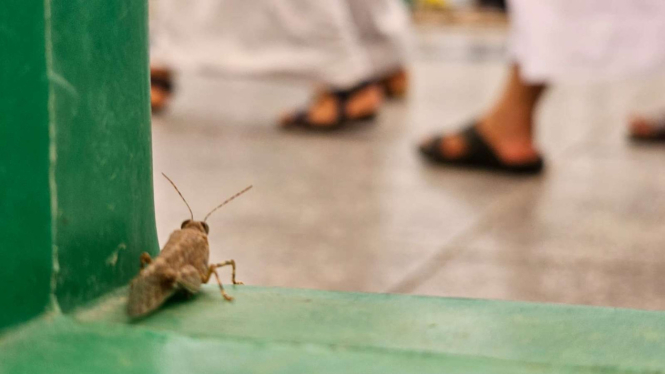- Lutfi Dwi Puji Astuti/MCH 2023
VIVA – A massive swarm of locusts plagued the Prophet's Mosque, in Medina, Saudi Arabia until Ameer Mohammad Bin Abdul Aziz Airport (AMMA). Every night, these locusts hit the airport. This phenomenon becomes the spotlight.
The janitors' staff at AMMA Airport and the Prophet's Mosque have not stopped cleaning up the scattered locust carcasses. Even the management increased the number of janitors to clean this up, according to the VIVA team.
These locusts look like have hard body textures and larger sizes.
Petugas kebersihan membersihkan serangga-belalang di Masjidil Haram, Mekkah
- Dok Life in Saudi Arabia
Many janitors in Prophet's Mosque worked together to sweep the mosque grounds. To reduce the swarm of insects, the Medina regional authority reduced lighting, including in the Prophet's Mosque area.
"We assigned 1,000 cleaning staff and more than 600 special electric and manual cleaning tools to collect insects," said a statement from the Prophet's Mosque management authority.
Another way to minimize the swarm of insects is to open the mosque umbrella at any time even at night.
Usually, a wave of locust attacks occurs in Saudi Arabia between January and June or during the change from winter to summer.
Locust invasions have also occurred in Mecca. The Grand Mosque complex was infested with large numbers of locusts in 2019.
A special team of sanitation workers was deployed to deal with this strange phenomenon. Apart from locusts, there were also black crickets.
Because of this, a special team of sanitation workers conducted fumigation throughout Mecca City.
As information, the UN Food Organization FAO previously warned about a locust plague in northeast Africa and Saudi Arabia in February 2023. According to FAO, heavy rains and cyclones have encouraged the breeding of locusts since October 2022.



























